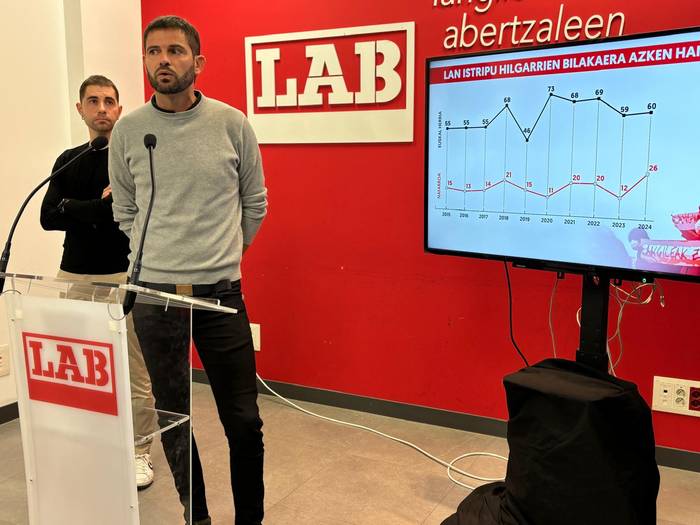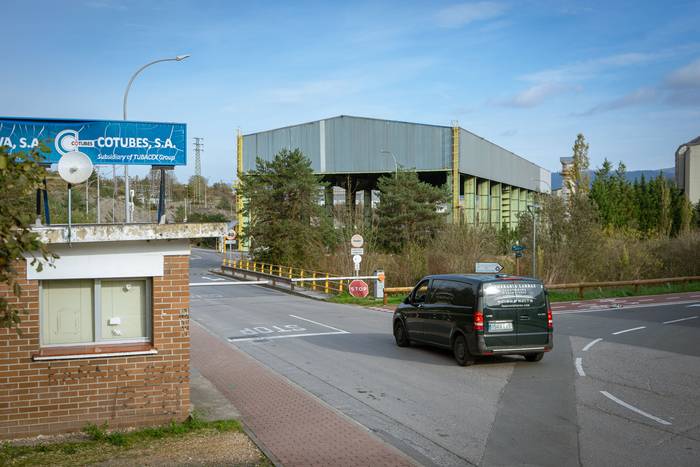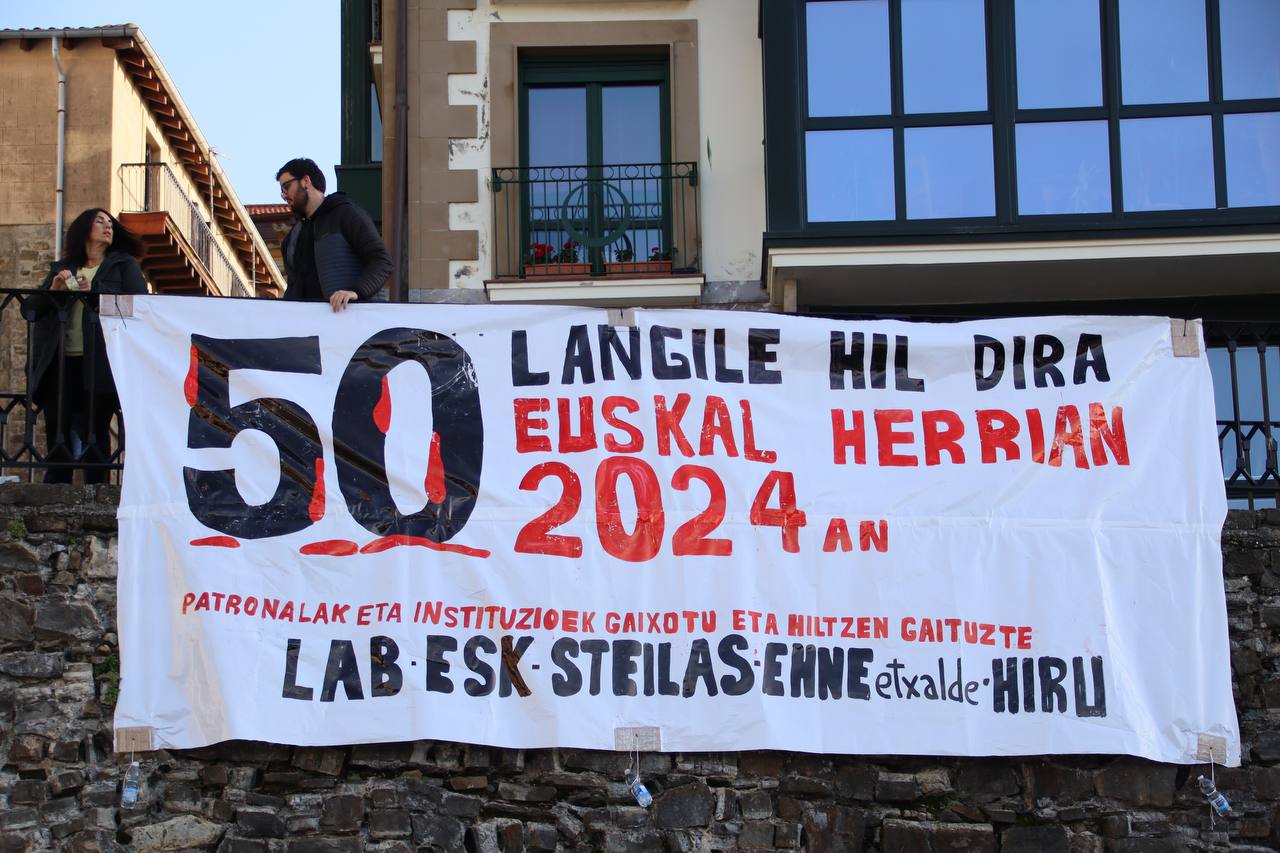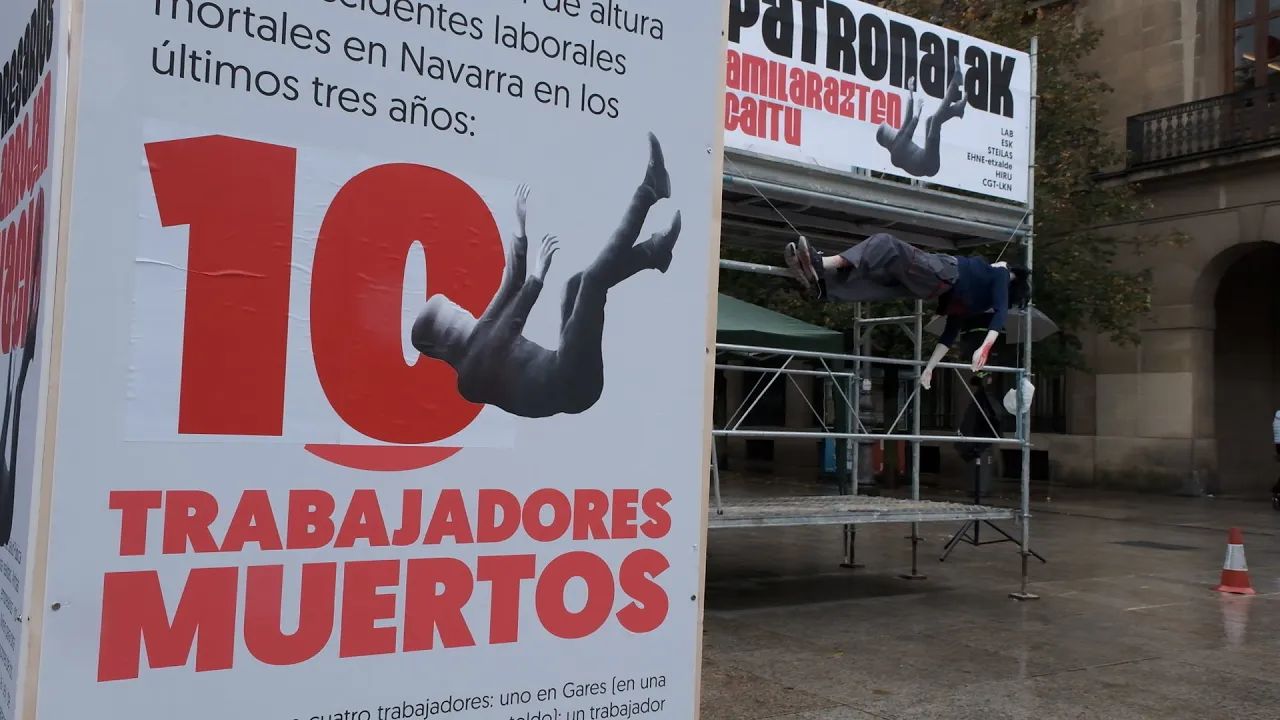Deliveroo leaves Hego Euskal Herria when workers are required to pay the minimum wage
- Food distribution companies must recruit the riders who work as self-employed according to the Rider Law. The Spanish Government must grant workers the minimum wage, the working day and the right to subrogation, which will apply within two weeks. Delivero has announced that it is leaving, pointing out "the market's incompetence".

Deliveroo, the food distribution company by APP, has been serving in Hego Euskal Herria and the Spanish state for six years. In a statement released on Wednesday, euro zone leaders have announced that they will leave the country due to the "non-feasibility" of the business. They have explained that from now on they will not be able to compete with companies such as Glovo, Uber Eats and Just Eat.
The decision was taken two weeks before the Rider law came into force in the United Kingdom. The law stipulates that food distribution companies must recruit their self-employed workers as distributors and that their working conditions are equated with the rest of the hospitality workers. Among other things, they must offer them the minimum wage, the standard working day and the right of subrogation.
According to La Vanguardia, Deliveroo will make a collective dismissal with those self-employed who have not yet entered the company’s workforce. From 12 August onwards, distributors will be recruited, as established by the Rider law. Consultation with workers will be organised in September and the process of applying the employment regulation dossiers to all of them will begin.
Although the document published by the company is not clear, it appears that the decision is motivated by the impossibility of concluding an employee contract for all workers. They explained that it would be difficult to maintain a "first level market position" in Spain: "This would require a very high level of investment and in the long term a very uncertain potential return that could affect the economic viability of the market," they point out.
The workers’ unions have strongly criticised the company’s decision. The ELA trade union, for example, has accused companies of wanting to be "above the law." "These workers have been facing unfortunate pressures and working conditions for years, and this new blow entails further deepening this violation of rights," he stressed. For its part, the CCOO trade union has called for a "guarantee" to be given to workers affected by the tax to respect their employment status, as pointed out by the courts and the inspection records.
Other detainees, Rider, have demonstrated against the law of sexual abuse. The media El País collects the words of the Professional Association of Self-employed Riders and the organization repartidoresunidos.org. According to them, the regime to be applied allows for the “leakage” of multinationals: they have explained that the self-employed model is “more flexible” for both the sector and distributors, and that it is the only way to enable both parties to act “with stability”.
Truce of the company Glovo
Deliveroo was not the only multinational that made changes to the Rider law: The food distribution company Glovo will hire 2,000 more workers, but instead of adding everyone to the workforce, it will take another strategy. As explained by ELA, they have offered the company’s distributors two options: to get to work or to remain self-employed. The courts have considered the latter option to be “fraud”.
LANBIDE has launched an anti-fraud campaign in Income Guarantee Income and has created an anonymous whistleblower. Responding to the criticisms received, he said that this mailbox was merely an instrument for ordering complaints and notifications. It does not promote class... [+]





















